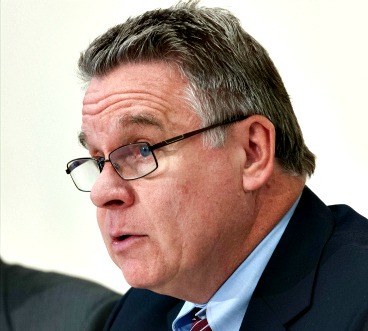Mr. Speaker, today I am introducing a resolution congratulating the Kalmyk people in the United States on the fiftieth anniversary of their settlement in this country. The resolution also encourages continuing scholarly and educational exchanges between the Russian Federation and the United States to encourage better understanding and appreciation of the Kalmyk people and their contributions to the history and culture of both countries. The Kalmyks were originally an ethnic Mongolian nomadic people who have inhabited the Russian steppes for around 400 years. The present Kalmyk Republic of the Russian Federation is located north of the Caspian Sea in southern Russia. During World War II, the Kalmyk people were one of the seven “punished peoples” exiled en masse by Stalin to “special settlements” in Siberia and Central Asia for allegedly collaborating with the Nazis. There were about 170,000 deportees. After World War II, several hundred Kalmyks who managed to escape the Soviet Union were held in Displaced Persons camps in Germany. For several years, they were not allowed to emigrate to the United States because of prejudice against their Mongolian ethnicity.
However, on July 28, 1951, the Attorney General of the United States issued a ruling which cleared the way for the Kalmyk people in the Displaced Persons camps in Germany to enter the United States. In the fifty years since their arrival, the Kalmyk emigres and their descendants have survived and prospered. Moreover, they are the first community of Tibetan Buddhists to settle in the United States. While adapting to much of America’s diverse and modern culture, the Kalmyk have also sought to preserve their own unique traditions. Many continue to practice the Tibetan Buddhist religion. Since the collapse of the Soviet Union, the Kalmyk community of the United States has been able to re-establish contact with the Kalmyk people in the Russian Federation. For the past ten years, a wide exchange has been developed between relatives, students and professionals. Mr. Speaker, our country is so much richer for the presence of our Kalmyk-American citizens. I urge my colleagues to join me and my colleagues Mr. Hoyer, Mr. Pitts, Mr. Cardin, Mr. Wamp, and Mr. Hastings, in congratulating the Kalmyk-American community on the fiftieth anniversary of their settlement in the United States by cosponsoring and supporting this resolution.



